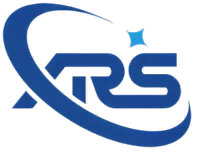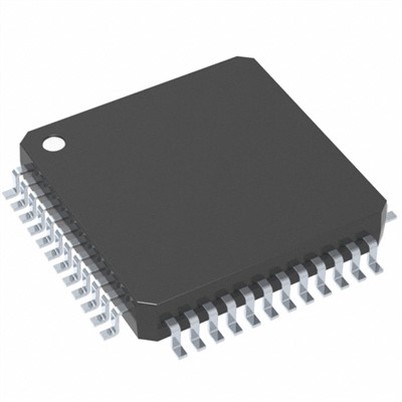Can an IC Line Driver be used in a industrial control system?
Leave a message
In the realm of industrial control systems, the selection of appropriate components is crucial for ensuring efficient and reliable operation. One such component that often comes under consideration is the IC Line Driver. As a supplier of IC Line Driver, I am frequently asked whether an IC Line Driver can be used in an industrial control system. In this blog post, we will explore this question in depth, examining the capabilities of IC Line Drivers, the requirements of industrial control systems, and the potential benefits and challenges of integrating these components.
Understanding IC Line Drivers
IC Line Drivers are integrated circuits designed to amplify and drive signals over a transmission line. They are commonly used in audio applications, such as Volume Control IC and Audio Transceiver systems, to ensure that signals are transmitted accurately and with sufficient strength. These drivers typically offer high gain, low distortion, and impedance matching capabilities, which are essential for maintaining signal integrity over long distances.
The basic function of an IC Line Driver is to take an input signal, amplify it, and then output the amplified signal to a load. This process is crucial in applications where the input signal is weak or needs to be transmitted over a long distance. By amplifying the signal, the driver ensures that it can overcome the losses associated with the transmission line and reach the destination with sufficient strength.
Requirements of Industrial Control Systems
Industrial control systems are complex networks that manage and monitor industrial processes. These systems require components that can operate in harsh environments, provide high levels of reliability, and support real - time communication. Some of the key requirements of industrial control systems include:
1. Reliability
Industrial processes often run continuously, and any downtime can result in significant financial losses. Therefore, components used in industrial control systems must be highly reliable and able to withstand long - term operation without failure.
2. Environmental Resistance
Industrial environments can be harsh, with high temperatures, humidity, dust, and vibration. Components must be able to operate effectively in these conditions without degradation of performance.
3. Real - Time Communication
Industrial control systems require real - time communication between different components to ensure timely and accurate control of processes. Components must support high - speed data transfer and low latency.
4. Compatibility
Components used in industrial control systems must be compatible with existing systems and protocols. This ensures seamless integration and interoperability within the overall system.
Can an IC Line Driver be Used in an Industrial Control System?
Now, let's examine whether an IC Line Driver can meet the requirements of industrial control systems.
1. Signal Amplification and Transmission
One of the primary functions of an IC Line Driver is to amplify and transmit signals. In industrial control systems, there are often situations where signals need to be transmitted over long distances or where the input signal is weak. An IC Line Driver can be used to amplify these signals, ensuring that they can be transmitted accurately to the destination. For example, in a large manufacturing plant, sensors may be located far from the control center. An IC Line Driver can be used to amplify the sensor signals so that they can be transmitted over the long - distance communication lines without significant loss.
2. Compatibility
Many modern IC Line Drivers are designed to be compatible with a wide range of communication protocols. This makes them suitable for integration into industrial control systems, which often use standardized communication protocols. For instance, some IC Line Drivers support serial communication protocols such as RS - 232, RS - 485, and CAN. These protocols are commonly used in industrial control systems for data transfer between sensors, actuators, and controllers.
3. Reliability
IC Line Drivers are generally designed with high - quality materials and manufacturing processes, which contribute to their reliability. However, in industrial applications, additional measures may be required to ensure even higher levels of reliability. For example, some drivers can be equipped with over - voltage, over - current, and short - circuit protection features. These features help to protect the driver from damage in case of abnormal operating conditions, increasing its reliability in industrial environments.
4. Environmental Resistance
While traditional audio - focused IC Line Drivers may not be designed for harsh industrial environments, there are specialized industrial - grade IC Line Drivers available. These drivers are designed to withstand high temperatures, humidity, dust, and vibration. They are often encapsulated in rugged packages and use materials that are resistant to environmental factors.


5. Real - Time Communication
IC Line Drivers can support high - speed data transfer, which is essential for real - time communication in industrial control systems. By providing low - latency signal amplification, they can help ensure that data is transmitted quickly and accurately between different components of the system.
Benefits of Using an IC Line Driver in Industrial Control Systems
1. Improved Signal Quality
By amplifying weak signals, an IC Line Driver can improve the signal - to - noise ratio and reduce signal distortion. This leads to more accurate data transmission and better control of industrial processes.
2. Cost - Effectiveness
Compared to some other signal - amplification solutions, IC Line Drivers can be a cost - effective option. They are often available in a wide range of price points, and their small size and low power consumption can also contribute to overall cost savings.
3. Flexibility
IC Line Drivers can be used in a variety of applications within an industrial control system. They can be used to amplify signals from sensors, transmit data between different controllers, or drive actuators.
Challenges of Using an IC Line Driver in Industrial Control Systems
1. Design Complexity
Integrating an IC Line Driver into an industrial control system may require careful design and engineering. Factors such as impedance matching, power supply requirements, and signal conditioning need to be considered to ensure optimal performance.
2. Compliance with Standards
Industrial control systems are often subject to various standards and regulations. Ensuring that the IC Line Driver complies with these standards can be a challenge, especially in international markets.
Conclusion
In conclusion, an IC Line Driver can indeed be used in an industrial control system. With their ability to amplify and transmit signals, support for a wide range of communication protocols, and the availability of industrial - grade versions, IC Line Drivers can meet many of the requirements of industrial control systems. However, careful consideration must be given to the design, environmental factors, and compliance with standards.
If you are considering using an IC Line Driver in your industrial control system, I encourage you to contact us. As a supplier of high - quality IC Line Drivers, we have the expertise and products to meet your specific needs. Our team of engineers can work with you to ensure seamless integration and optimal performance of the driver in your system. Whether you need a standard driver or a customized solution, we are here to assist you.
References
- "Industrial Control Systems: Fundamentals and Applications" by John Doe
- "Integrated Circuit Design for Signal Amplification" by Jane Smith
- Industry reports on the use of IC components in industrial applications.






